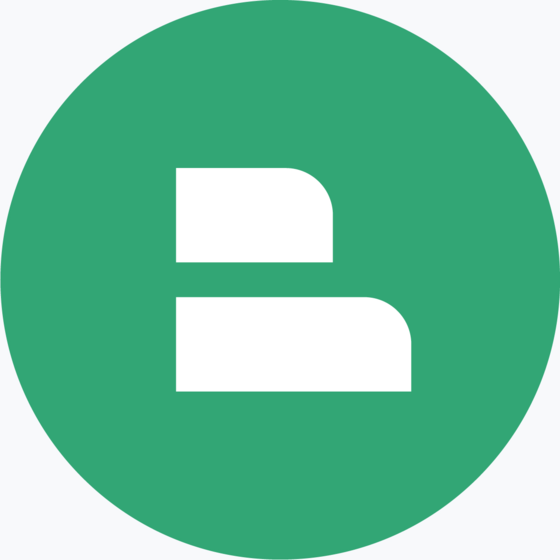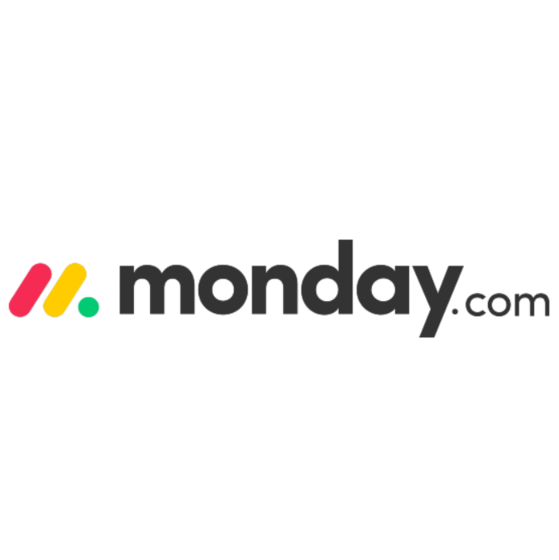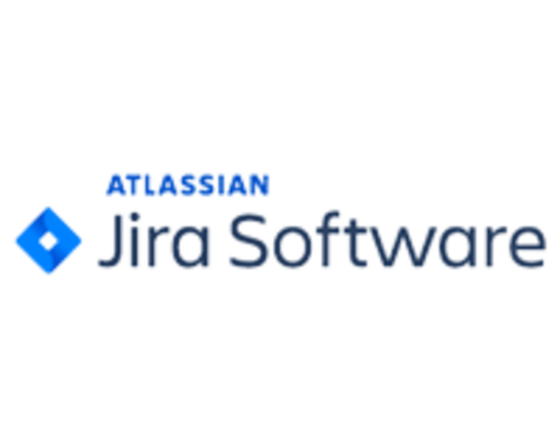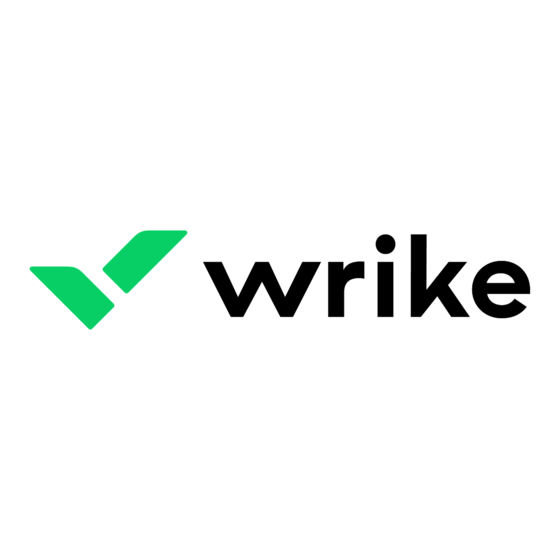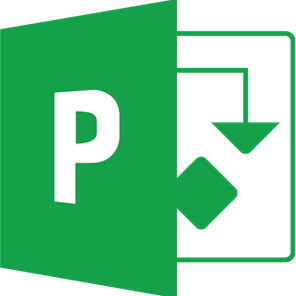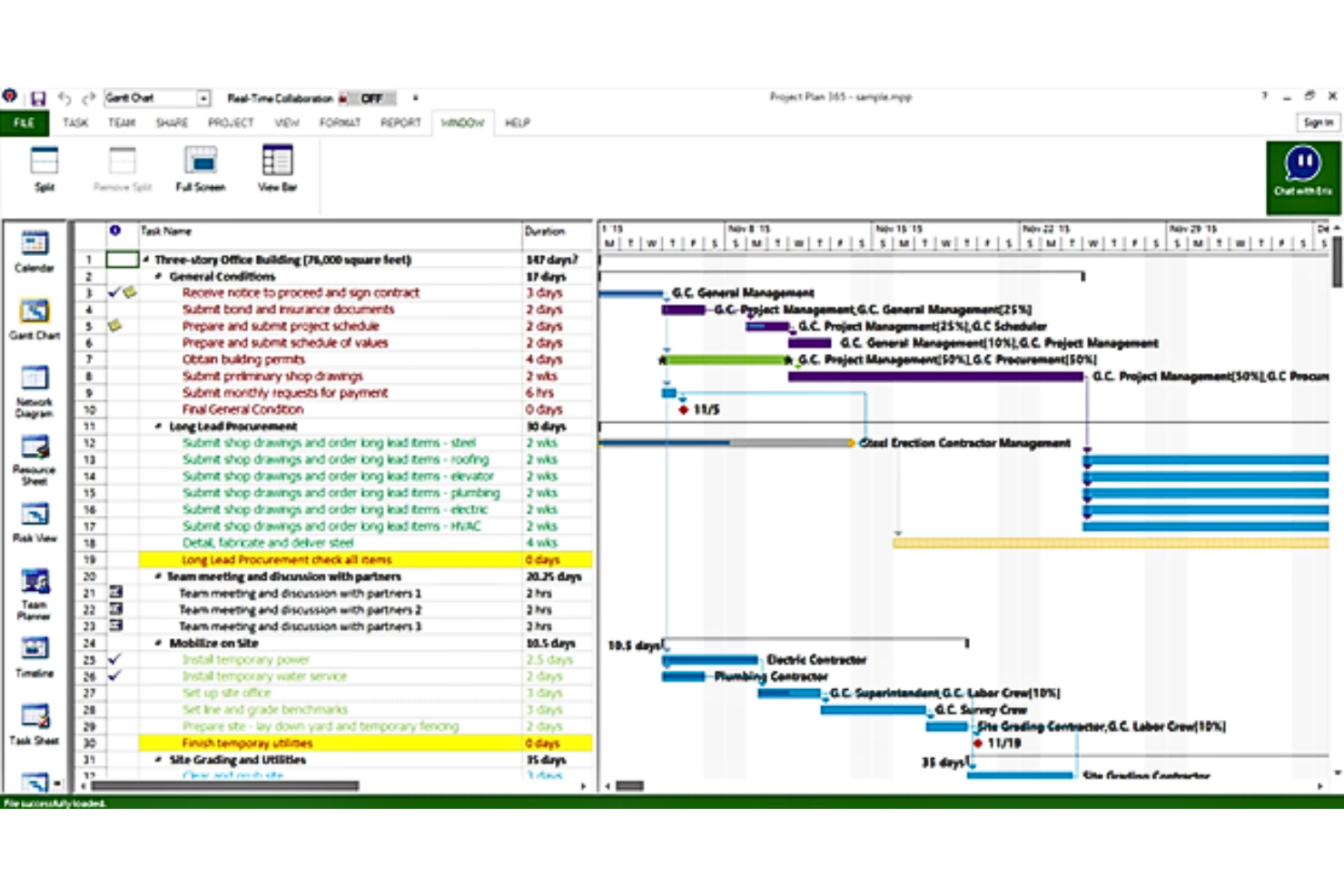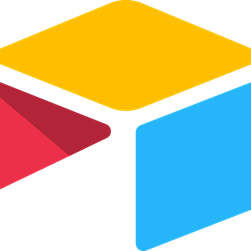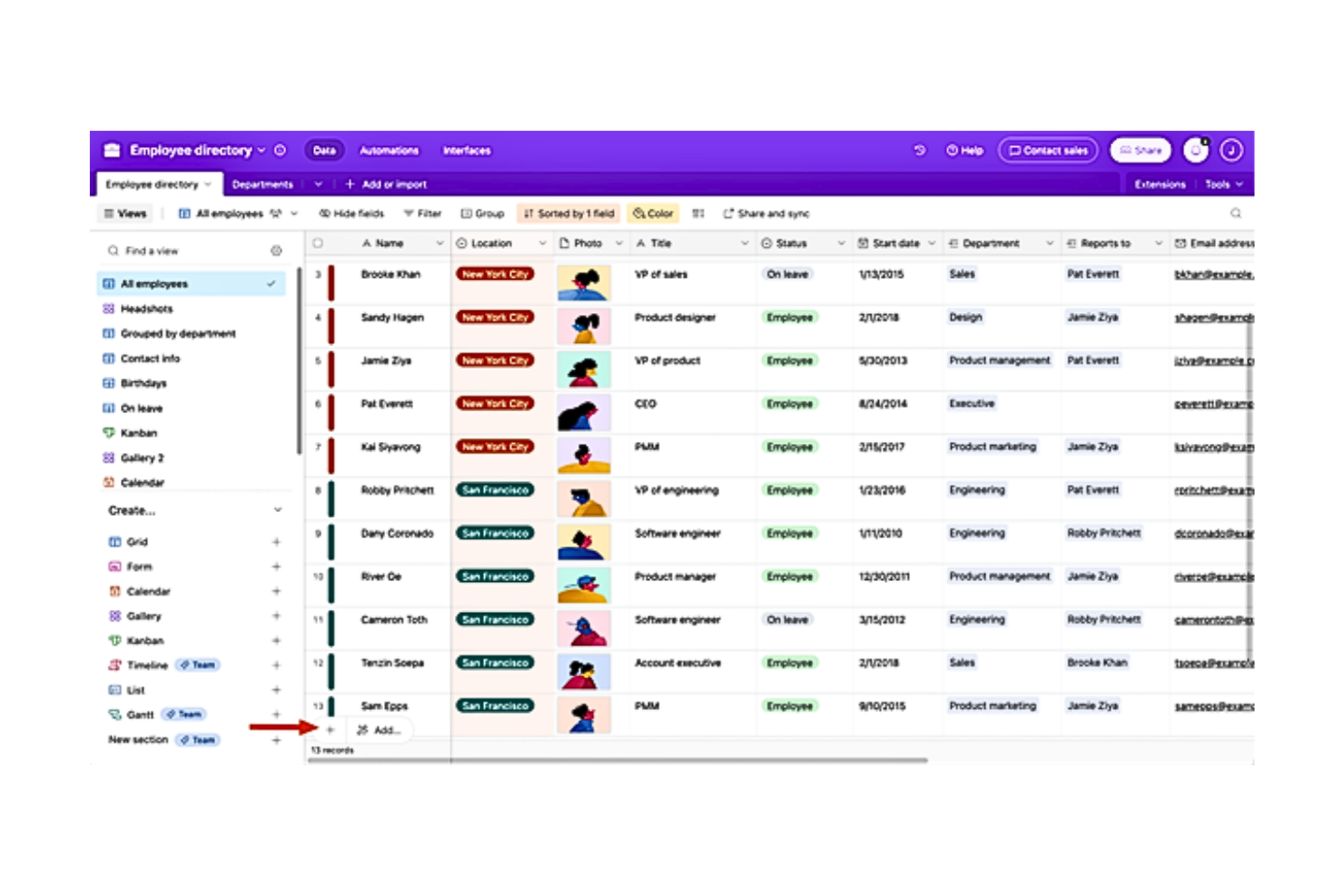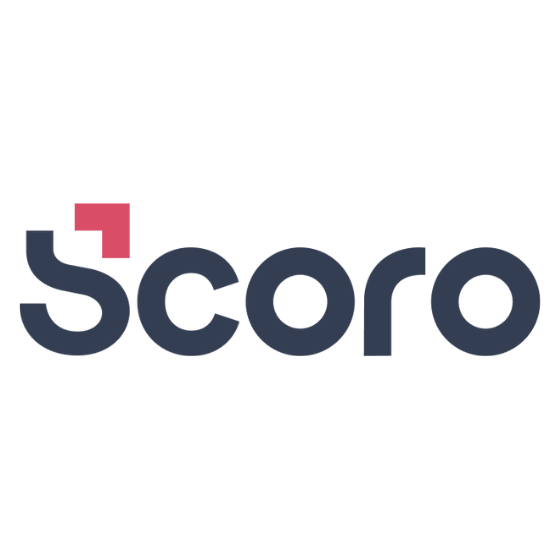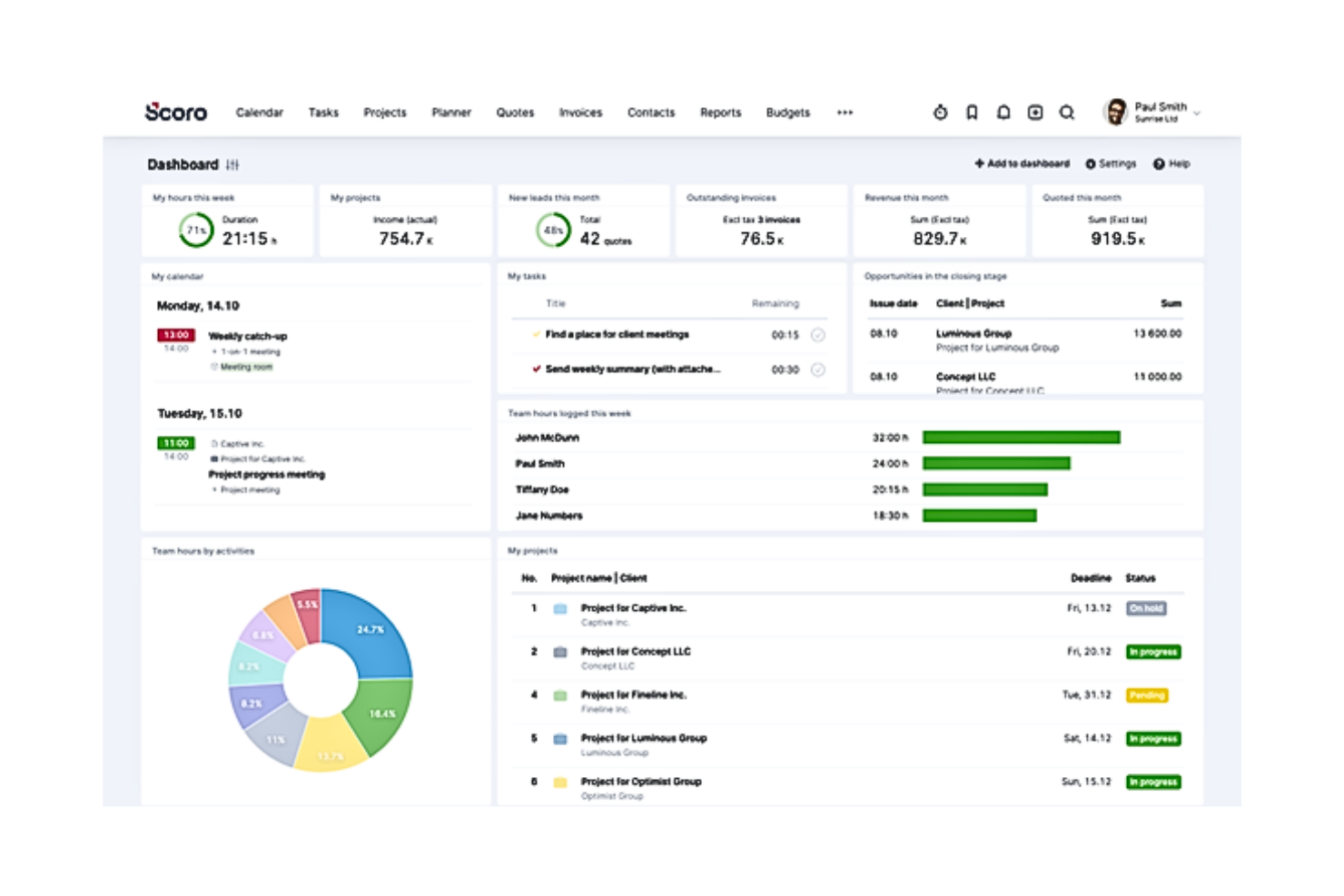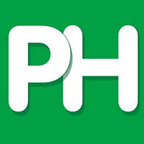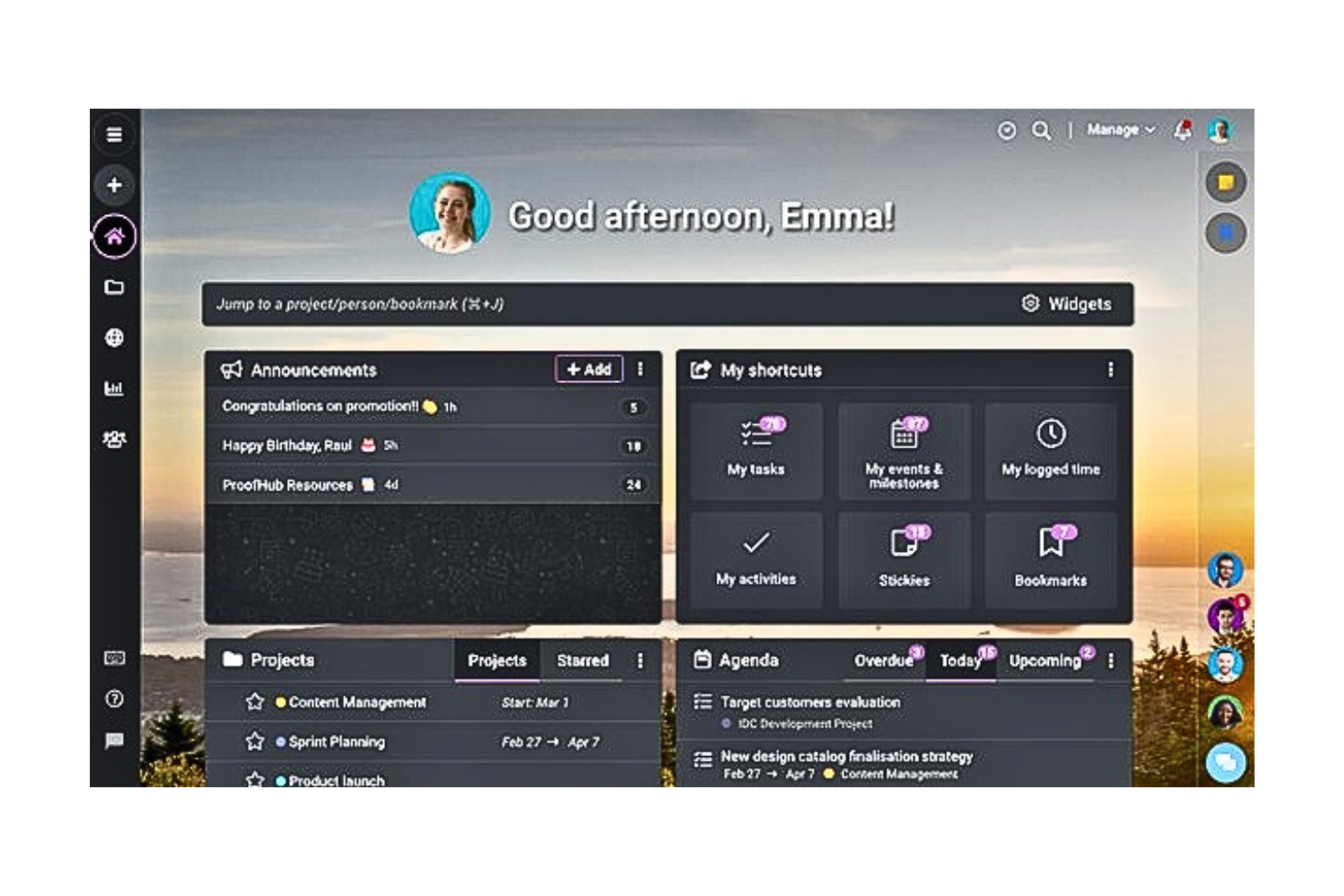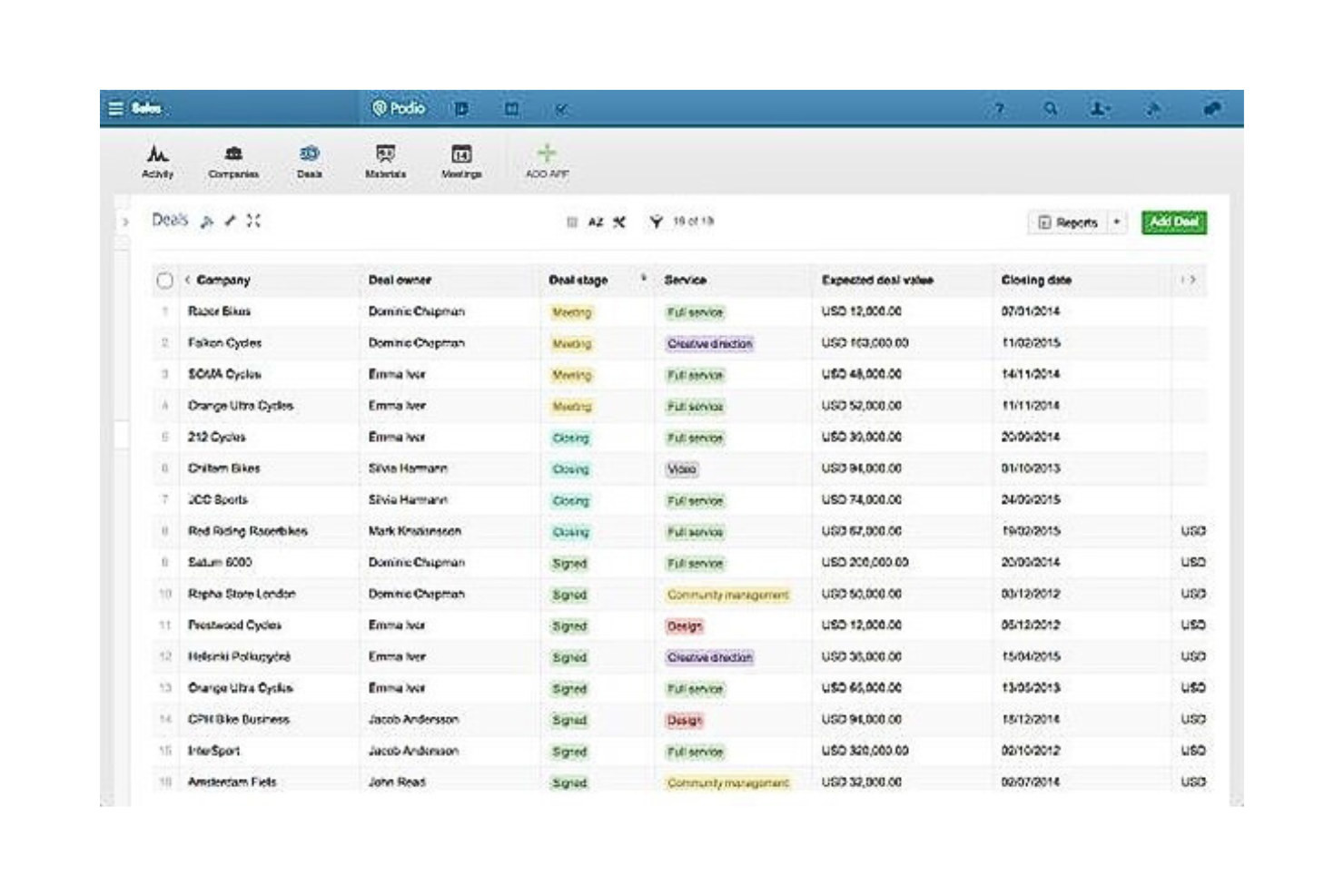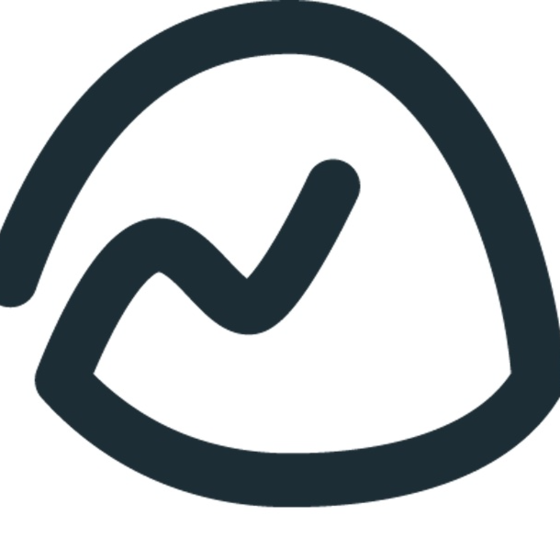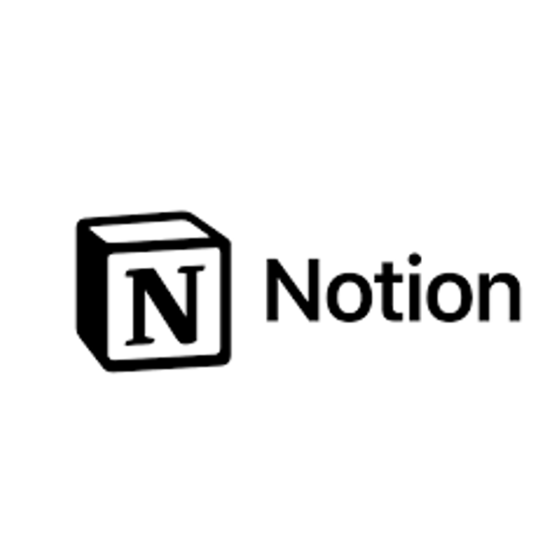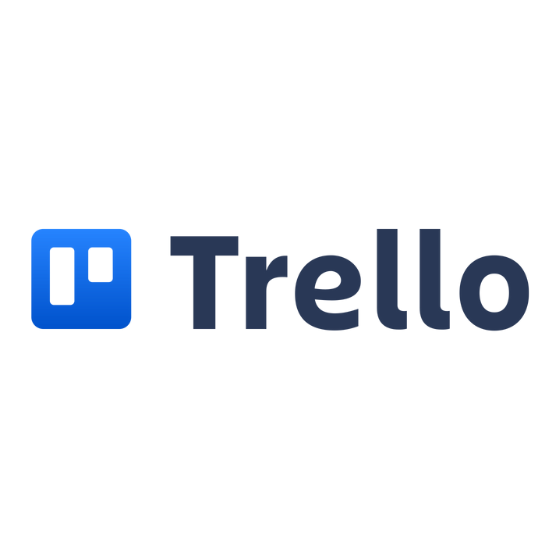Best Enterprise Task Management Software Shortlist
Get free help from our project management software advisors to find your match.
Choosing the right enterprise task management software is tough. You need to boost productivity and tackle complex projects. I've simplified this choice for you. My experience with various solutions has led me here. These tools organize tasks and improve team collaboration efficiently. They reduce manual effort and enhance project visibility. Key pain points addressed include scattered tasks and poor resource allocation. I wrote this guide to help you find your best fit.
Why Trust Our Enterprise Task Management Software Reviews
We’ve been testing and reviewing enterprise task management software since 2012. As digital project managers ourselves, we know how critical and difficult it is to make the right decision when selecting software.
We invest in deep research to help our audience make better software purchasing decisions. We’ve tested more than 2,000 tools for different Project Management use cases and written over 1,000 comprehensive software reviews. Learn how we stay transparent & our software review methodology.
Best Enterprise Task Management Software Summary
| Tools | Price | |
|---|---|---|
| Wrike | $9.80/user/month min. 2 seats | Website |
| Microsoft Project | $10/user/month | Website |
| Airtable | From $10/user/month (billed annually). | Website |
| Scoro | From $26/user/month (billed annually) | Website |
| ProofHub | From $45/month (flat rate for unlimited users) | Website |
| Podio | From $9/user/month (billed annually). | Website |
| Basecamp | $99/month max. 10 users | Website |
| Notion | $10/user/month | Website |
| Trello | From $5/user/month (billed annually). | Website |
| HighGear | Pricing upon request. | Website |
| Jira | From $7.50/user/month (billed annually). | Website |
| Asana | From $10.99/user/month (billed annually). | Website |
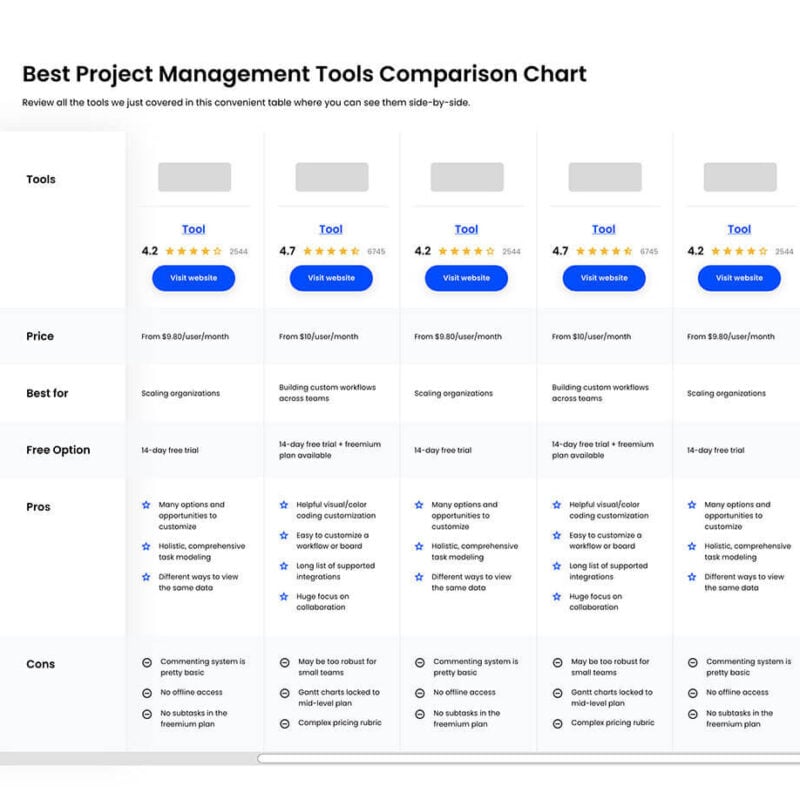
Compare Software Specs Side by Side
Use our comparison chart to review and evaluate software specs side-by-side.
Compare SoftwareHow To Choose Enterprise Task Management Software
As you work through your own unique software selection process, keep the following points in mind:
- Scalability: Consider how well the software can grow with your organization. Enterprise task management solutions should be able to handle an increasing number of tasks, projects, and users without sacrificing performance.
- Integration Capabilities: Look for software that integrates with your existing tools and systems. Effective integration can streamline workflows, enhance communication, and prevent data silos.
- Customization and Flexibility: Each enterprise has unique processes and needs. The right software should offer customization options to match your specific workflow requirements. A company with complex project structures might need customizable task statuses, workflows, and reporting capabilities to align with their processes.
- Security and Compliance: Security is paramount for enterprises managing sensitive information. Ensure the software complies with industry standards and offers robust security features like encryption, access controls, and data protection.
- User Experience and Adoption: The software should be intuitive and easy for your team to use. A user-friendly interface can lead to higher adoption rates and less resistance among team members. Consider a platform that offers onboarding support and training to ensure smooth implementation.
Best Enterprise Task Management Software Reviews
Here are my comprehensive reviews to explore the intricacies of each enterprise task management software. These analyses highlight the strengths and weaknesses, feature sets, and optimal use cases for each tool, guiding you to make an informed decision.
Wrike is an enterprise task management software designed to help teams manage tasks and projects all in one place.
Why I Picked Wrike:
As a project management tool, Wrike is ideal for businesses seeking a comprehensive solution to manage their projects. It offers a centralized platform with 360° visibility on all projects, customizable dashboards, real-time monitoring, and the ability to scale up quickly. These features help improve project management for teams and enterprises with complex workloads and multiple active projects.
Standout features & integrations:
Wrike offers features like automation, proofing, cross-tagging, Kanban boards, Gantt charts, approvals, custom item types, spaces for different departments and workflows, workload charts, time tracking, and budgeting.
Integrations include Slack, Salesforce, Microsoft Teams, Adobe Creative Cloud, Google Sheets, Miro, Tableau, MediaValet, Zoom, Google Drive, Microsoft SharePoint, Microsoft OneDrive, Google Calendar, and more.
Pros and cons
Pros:
- Workload charts
- Automation features
- Flexible project templates
Cons:
- Limited number of users on the free plan
- Learning curve for new users
Microsoft Project simplifies the management and planning of large, complex projects.
Why I Picked Microsoft Project:
I chose Microsoft Project because of its comprehensive toolset tailored for complex project planning and management. Its robust features and integrations stand out from other project management software, making it an exceptional choice for managing intricate project schedules and resources. Its capability to handle complexity effortlessly is why it's best for complex project planning.
Standout features & integrations:
Microsoft Project excels with its detailed scheduling features, real-time collaboration capabilities, and comprehensive reporting tools. These features ensure that every aspect of project management is covered, from initiation to closure.
Integrates natively with Microsoft 365 suite, including Excel, Outlook, Teams, Power BI, SharePoint, OneDrive for Business, Azure, Dynamics 365, and more.
Pros and cons
Pros:
- Detailed reporting and analytics
- Strong integration with Microsoft ecosystem
- Comprehensive project management features
Cons:
- Limited agility for rapid project changes
- Can be expensive for large teams
- Steep learning curve
Airtable combines the simplicity of a spreadsheet with the complexity of a robust database.
Why I Picked Airtable:
I selected Airtable for its unparalleled flexibility in database customization. Its unique ability to adapt to virtually any workflow and its user-friendly interface set it apart from traditional database management tools. Airtable's approach to database management, emphasizing ease of use without sacrificing depth and functionality, makes it an ideal choice for businesses needing customizable data solutions.
Standout features & integrations:
Airtable's standout features include its rich field types, such as checkboxes, dropdowns, and file attachments, as well as its powerful filtering, sorting, and grouping capabilities. The platform also offers a wide range of templates to jumpstart various projects and workflows.
It integrates with a variety of tools, including Slack, Gmail, Google Calendar, Dropbox, Box, Zapier, and more, facilitating a workflow across applications.
Pros and cons
Pros:
- Extensive integration options
- Intuitive user interface
- Highly customizable and flexible
Cons:
- Limited reporting capabilities compared to dedicated project management tools
- Steep learning curve for advanced features
- Pricing can escalate quickly with additional users and features
Scoro streamlines business processes with a strong focus on financial management and project oversight.
Why I Picked Scoro:
I chose Scoro for its robust financial management integration capabilities, which are unparalleled in the project management software space. Its comprehensive suite of features allows for tracking of project budgets, expenses, and invoicing, making it indispensable for businesses focused on maintaining financial health and transparency. Scoro's ability to integrate financial data with other project elements provides a holistic view of business operations.
Standout features & integrations:
Scoro's standout features include detailed financial reporting, time tracking, project management, and CRM functionalities. Its financial management tools are particularly noteworthy, offering in-depth insights into profitability, budgeting, and invoicing.
It integrates with financial software and tools, enhancing its financial oversight capabilities.
Pros and cons
Pros:
- Integration with a wide range of financial software
- Customizable dashboards and reports
- Comprehensive financial management tools
Cons:
- May require additional investment in training for full utilization
- Higher cost compared to basic project management tools
- Steep learning curve for new users
ProofHub offers comprehensive project management solutions with a strong emphasis on proofing and approval workflows.
Why I Picked ProofHub:
I selected ProofHub for its streamlined proofing and approval processes, which stand out in the realm of project management tools. Its specialized features for reviewing and approving documents and designs directly within the platform make it particularly valuable for teams in creative and development sectors. This focus on facilitating feedback and revisions ensures efficiency and accuracy in project deliverables.
Standout features & integrations:
ProofHub's key features include integrated task lists, Gantt charts for planning, document and file management, and, most notably, online proofing tools that allow for real-time feedback and approvals. Its ability to centralize communications and file management further streamlines the review process.
It integrates with a variety of other tools, enhancing its utility for teams.
Pros and cons
Pros:
- Easy to use with minimal training required
- Flat pricing for unlimited users
- Streamlined proofing and approval processes
Cons:
- Integrations are useful but might not cover all third-party tools businesses use
- May lack advanced features for large-scale projects
- Limited customization options
Podio facilitates project management and collaboration within teams and with external stakeholders through customizable workspaces.
Why I Picked Podio:
I selected Podio for its exceptional capability to support external project collaboration. Its platform uniquely combines project management functionalities with robust customization options and external access controls, making it stand out from other tools. Podio's flexibility in managing workflows and information sharing with clients and partners is why it's especially beneficial for teams working extensively with external stakeholders.
Standout features & integrations:
Podio excels with its customizable apps and workflows, enabling teams to tailor the platform to their specific project needs. The tool's comprehensive task management, file sharing, and communication features streamline collaboration, both internally and externally.
It integrates with a variety of tools, including Google Drive, Dropbox, Evernote, and more, enhancing its capabilities in project management and collaboration.
Pros and cons
Pros:
- Integrates with a wide range of apps and services
- Effective for managing external collaborations
- Highly customizable for various project needs
Cons:
- Some users may find the interface less intuitive than competitors'
- Pricing can become expensive with additional users and features
- Can be complex to set up initially
Basecamp organizes your project progress, internal communications, and client work in one place so it's easier to get things done.
Why I Picked Basecamp:
I chose Basecamp for its unparalleled focus on improving team communication within a single platform. Unlike other project management tools that can scatter conversation across various channels, Basecamp centralizes discussions, making it easier to track and manage team interactions. Its dedication to simplifying communication and project oversight makes it best for teams looking for an efficient way to stay connected on projects.
Standout features & integrations:
Basecamp's key features include to-do lists for task management, message boards for discussions, schedules for planning, and docs & files storage for collaboration. These tools are integrated directly into each project space, making it simple to find what you need.
It integrates with a variety of external tools and services to enhance its functionality, including email, calendar apps, time tracking tools, and more.
Pros and cons
Pros:
- Easy to use with minimal setup required
- Flat pricing for unlimited users and projects
- All-in-one tool for project management and communication
Cons:
- Fewer integrations compared to competitors
- Limited customization options for task management
- Lacks the complexity needed for large-scale project management
Notion is an all-in-one workspace for note-taking, project management, and task organization.
Why I Picked Notion:
I chose Notion for its unparalleled flexibility in integrating notes and tasks within a single, unified platform. Its ability to adapt to various workflows and the integration between text, tasks, and databases make it standout for personal organization and team collaboration alike. Notion's user-friendly interface and customizable templates cater perfectly to those seeking an integrated solution for notes and task management.
Standout features & integrations:
Notion shines with its rich text editing, extensive templating system, and powerful database functionality. These features allow users to create customized workflows that can include everything from simple to-do lists to complex project management boards.
Notion offers a wide range of internal integrations and embeds like Google Sheets, Figma files, and Miro boards.
Pros and cons
Pros:
- Clean, user-friendly interface
- Integrated notes and tasks within the same platform
- Highly customizable pages and templates
Cons:
- May require third-party integrations for advanced project management
- Limited offline functionality
- Can have a learning curve for new users
Trello simplifies project and task management with its visual boards, cards, and lists.
Why I Picked Trello:
I chose Trello for its intuitive and visual approach to task management. Its ease of use and flexibility in organizing tasks and projects visually set it apart from other task management software. Trello's board and card system is perfect for visual thinkers and teams who benefit from seeing tasks laid out in a highly visual format.
Standout features & integrations:
Trello's standout features include customizable kanban boards, cards for task details, and the ability to add checklists, labels, and due dates. Its power-ups extend its functionality, integrating with a wide range of apps and services.
It integrates natively with tools such as Slack, Google Drive, Dropbox, OneDrive, Box, and more, enhancing its utility and flexibility.
Pros and cons
Pros:
- Wide range of integrations
- Flexible and customizable
- Highly visual and intuitive interface
Cons:
- Less suited for complex project management needs
- Can become cluttered with extensive use
- Limited features in free version
HighGear enables enterprises to automate and optimize their workflows efficiently.
Why I Picked HighGear:
I selected HighGear for its standout capability in automating complex workflows across various industries, making it unmatched for operational efficiency improvements. Its focus on enhancing workflow automation through user-friendly interfaces and powerful backend logic is why it's best suited for this use case.
Standout features & integrations:
HighGear is renowned for its drag-and-drop workflow builder, real-time status updates, and comprehensive analytics. These features empower users to customize workflows, track progress meticulously, and make data-driven decisions.
HighGear integrates natively with a variety of essential tools to enhance its functionality and user experience. These integrations include Microsoft Outlook, Microsoft Excel, Microsoft SharePoint, Microsoft SQL Server, Microsoft Power BI, Microsoft Teams, Zapier, Google Drive, Dropbox, and Salesforce. These connections help streamline various business processes, improving workflow automation and data synchronization across commonly used platforms.
Pros and cons
Pros:
- Strong analytical tools for performance tracking
- Customizable to various business processes
- Powerful workflow automation features
Cons:
- Limited information on integration without inquiry
- May require training for optimal utilization
- Pricing information not readily available
Other Enterprise Task Management Software To Consider
Below is a list of additional enterprise task management software that we shortlisted, but did not make it to the top list. Definitely worth checking them out.
- Zoho Projects
Best for small to midsize businesses
- Adobe Workfront
Good for enterprise work management integration
- Todoist
Good for simple task management and delegation
- Nifty
Good for milestone-driven planning
- Kantata
Good for professional services automation
- Smartsheet
Good for spreadsheet-based project management
- Teamwork.com
Good for client work management
- ClickUp
Good for all-in-one project and task management
- Workzone
Good for traditional project management with robust reporting
- Monday.com
Good for customization and visual project tracking
Selection Criteria For Enterprise Task Management Software
Selecting the right enterprise task management software involves a detailed evaluation of functionality and how well it meets specific use cases that are crucial for organizational success. In my experience of trying and researching these tools, I focus on how they cater to the nuanced needs of enterprises, addressing common pain points through their function.
Core Functionality (25% of total weighting score):
- Project planning and scheduling
- Task delegation and management
- Collaboration across teams and departments
- Progress tracking and reporting
- Integration with other enterprise systems
Additional Standout Features (25% of total weighting score):
- Innovative dashboard customization, offering a more personalized overview than competitors
- Unique automation features that reduce manual task entry, seen in tools like Asana and ClickUp
- Advanced reporting and analytics capabilities, providing deeper insights into project performance
- Integration with AI for predictive task management and optimization
- Superior file management systems for handling extensive documentation efficiently
Usability (10% of total weighting score):
- Intuitive drag-and-drop interfaces for task and project scheduling
- Clear and concise user interface design that minimizes learning time
- Mobile and desktop app availability for on-the-go management
Onboarding (10% of total weighting score):
- Comprehensive knowledge bases and FAQs to assist new users
- Availability of training videos and templates to speed up the setup process
- Interactive product tours and dedicated onboarding specialists
Customer Support (10% of total weighting score):
- 24/7 live chat support for immediate assistance
- Dedicated account managers for enterprise-level customers
- Community forums for peer-to-peer support and advice
Value For Money (10% of total weighting score):
- Transparent pricing structures with no hidden fees
- Tiered pricing plans that scale with business size and needs
- Free trials or demos to evaluate the software before committing
Customer Reviews (10% of total weighting score):
- High ratings for ease of use and customer support
- Positive feedback on software's impact on project efficiency
- Testimonials from reputable organizations highlighting specific benefits
Trends In Enterprise Task Management Software In 2024
Here are some trends I’ve noticed for task management technology, plus what they might mean for the future of the marketing industry. I sourced countless product updates, press releases, and release logs to tease out the most important insights.
- Integration with AI and Machine Learning: There's a clear trend towards leveraging AI and machine learning to enhance predictive analytics, automate task tracking and prioritization, and optimize resource allocation. This functionality is becoming more sophisticated, allowing digital project managers to anticipate project bottlenecks and streamline workflows more effectively.
- Enhanced Real-time Collaboration: The need for tools that support instantaneous communication and collaboration has led to the rapid evolution of features supporting in-app messaging, video conferencing, and live document editing. This trend underscores the importance of team coordination in a digital-first workplace.
- Customization and Flexibility: As projects and teams become more diverse, the demand for customizable dashboards, workflows, and reporting has grown. Tools that offer high levels of personalization to fit various project needs and management styles are increasingly crucial.
- Integration Ecosystems: The expanding integration ecosystems of task management apps, connecting with a broad range of third-party apps and services, highlight the importance of interoperability in today's digital tools. This functionality facilitates a more unified project management experience, reducing the need to switch between apps.
- Focus on User Experience: There's a noticeable shift towards improving the user experience with more intuitive interfaces, simplified navigation, and faster onboarding processes. This trend reflects the broader user expectation for software that is not only powerful but also easy to use.
- Decline of Standalone Tools: Standalone task management tools, without robust integration capabilities or flexibility, are becoming less popular. The trend is moving towards comprehensive platforms that can serve as a central hub for all project management activities.
What Is Enterprise Task Management Software?
Enterprise task management software organizes and tracks tasks and task dependencies in large organizations. It's used by managers, team leaders, and individual contributors. The goal is to streamline workflows and increase team productivity. Features include task scheduling, progress tracking, and collaboration tools. Teams gain a clear view of timelines and resources. This software reduces the need for multiple tools, optimizing project outcomes.
Features of Enterprise Task Management Software
When selecting enterprise task management software, it's crucial to consider features that deliver comprehensive functionality to meet the dynamic needs of large organizations. Below are the essential features to look for:
- Task Assignment and Tracking: Enables the distribution and monitoring of team tasks. This feature is vital for ensuring accountability and progress monitoring in project management.
- Collaboration Tools: Facilitate communication among team members. Effective collaboration tools are crucial for maintaining alignment and fostering a unified work environment.
- Project Planning and Scheduling: Allows for the mapping out of project timelines and milestones. This functionality is fundamental for successful project execution and deadline adherence.
- Reporting and Analytics: Provides insights into project performance and productivity metrics. Access to detailed reports is essential for informed decision-making and project optimization.
- Customizable Workflows: Offer the ability to tailor project management processes to specific needs. Flexibility in workflows is key to accommodating diverse project requirements and management styles.
- Time Tracking: Enables recording the amount of time spent on tasks and projects. This feature is important for resource allocation, billing, and productivity analysis.
- Resource Management: Helps in allocating and optimizing the use of resources. Effective resource management ensures that projects are well-staffed and equipped, minimizing bottlenecks.
- Integration Capabilities: Allow for the software to connect with other tools. Robust integration capabilities are crucial for streamlining processes and enhancing the software's utility.
- Security Features: Ensure data protection and access control. Strong security measures are essential to protect sensitive project information and comply with data regulations.
- Mobile Accessibility: Provides access to project management tools from any location. Mobile accessibility is important for supporting remote teams and on-the-go task management.
Benefits Of Enterprise Task Management Software
Enterprise task management software stands as a pivotal tool for organizations looking to streamline their project management processes, enhance collaboration, and boost overall productivity. Here are five key benefits to consider:
- Improved Project Visibility: Offers a comprehensive overview of project timelines, tasks, and progress. This benefit ensures that all team members are on the same page, reducing misunderstandings and keeping projects on track.
- Enhanced Collaboration: Facilitates communication and cooperation among team members. By centralizing discussions, documents, and feedback, the software eliminates barriers to effective teamwork and fosters a collaborative work culture.
- Increased Productivity: Automates routine tasks and streamlines project workflows. Users can focus on higher-value activities rather than getting bogged down by manual processes, leading to significant gains in efficiency and output.
- Data-Driven Decision Making: Provides access to real-time data and analytics. With detailed insights into project performance, managers can make informed decisions quickly, adjusting strategies as needed to ensure project success.
- Scalability: Adapts to the growing needs of a business. Whether dealing with an increasing number of projects or expanding teams, enterprise task management software can scale accordingly, supporting organizational growth without compromising on performance.
Adopting enterprise task management software offers a strategic advantage by optimizing project management practices, enhancing team coordination, and delivering insights that drive smarter business decisions. These benefits not only streamline operations but also contribute to the overall success and competitiveness of the organization in the dynamic business landscape.
Costs And Pricing For Enterprise Task Management Software
Choosing the right enterprise task management software involves understanding the various plan and pricing options available. As a software expert, I've observed that most providers offer a range of plans tailored to different sizes and types of teams, from small startups to large corporations.
These plans often vary in terms of features, support levels, and customization options, making it essential for software buyers to carefully assess their specific needs against what each plan offers.
| Plan Type | Average Price | Common Features |
| Free | $0 | Basic task management, limited projects, basic collaboration tools |
| Basic | $5-10/user/month | Task and project tracking, some integration options, email support |
| Standard | $10-25/user/month | Enhanced project management features, additional integrations, priority support |
| Premium | $25-50/user/month | Advanced reporting, full integration suite, personalized onboarding |
| Enterprise | Custom pricing | Custom features and integrations, dedicated support, extensive security options |
Each plan caters to different organizational needs, from basic task management in the Free plan to highly customizable and secure options in the Enterprise package. When selecting a plan, consider both your current needs and potential future growth to ensure the software can scale with your business.
Enterprise Task Management Software FAQs
Here are some of the frequently asked questions I get asked about enterprise task management software.
How does enterprise task management software differ from standard project management software?
While both types of software share common functionalities, enterprise task management software typically offers more advanced features tailored to the needs of larger organizations, including extensive integration options, higher security standards, and scalability to support a vast number of users and projects.
Can enterprise task management software integrate with other tools?
Yes, most enterprise task management platforms offer extensive integration capabilities with a wide range of third-party applications, including email, calendars, file storage, CRM systems, and more, to streamline workflows and centralize information.
Is enterprise task management software suitable for small businesses?
While designed for larger organizations, many enterprise task management tools offer scalable plans that can be tailored to the needs of smaller businesses, providing them with powerful features at a fraction of the cost.
How do I choose the right enterprise task management software for my organization?
Consider your organization’s specific needs, including the size of your team, the complexity of your projects, required integrations, and budget constraints. Evaluate different options based on these criteria, and take advantage of free trials to test the software’s functionality and usability.
Can enterprise task management software support remote work?
Absolutely. Enterprise task management software is designed to facilitate remote work by enabling team members to collaborate on tasks and projects from any location, providing tools for communication, file sharing, and project tracking that are accessible via web and mobile applications.
What Next?
Want to connect with other digital project managers to share resources and best practices? Join our membership community and get access to 100+ templates, samples, and examples and connect with 100s of other digital project managers in Slack.

